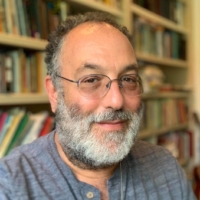Concerns About Student Well-Being as Virtual Learning Resumes
The blog of the National Association of Social Workers spotlighted a report, co-authored by Social Welfare Professor Ron Avi Astor, on the wide-ranging needs of schoolchildren as virtual learning resumes amid the ongoing COVID-19 pandemic. A high proportion of students, especially from low-income families, are experiencing hunger, housing instability, health and mental health issues, and other challenges, according to the report, which drew its findings from a large-scale survey of school social workers around the country. These social workers play a key role in assessing students’ mental health and social care needs and connecting them with vital community resources, the article noted. The report called for a coordinated and comprehensive response from federal and state policymakers and national educational leaders to address the needs of students during the crisis. Astor co-authored the report with scholars from Loyola University Chicago, Cal State Fullerton, Hebrew University and UCLA.
